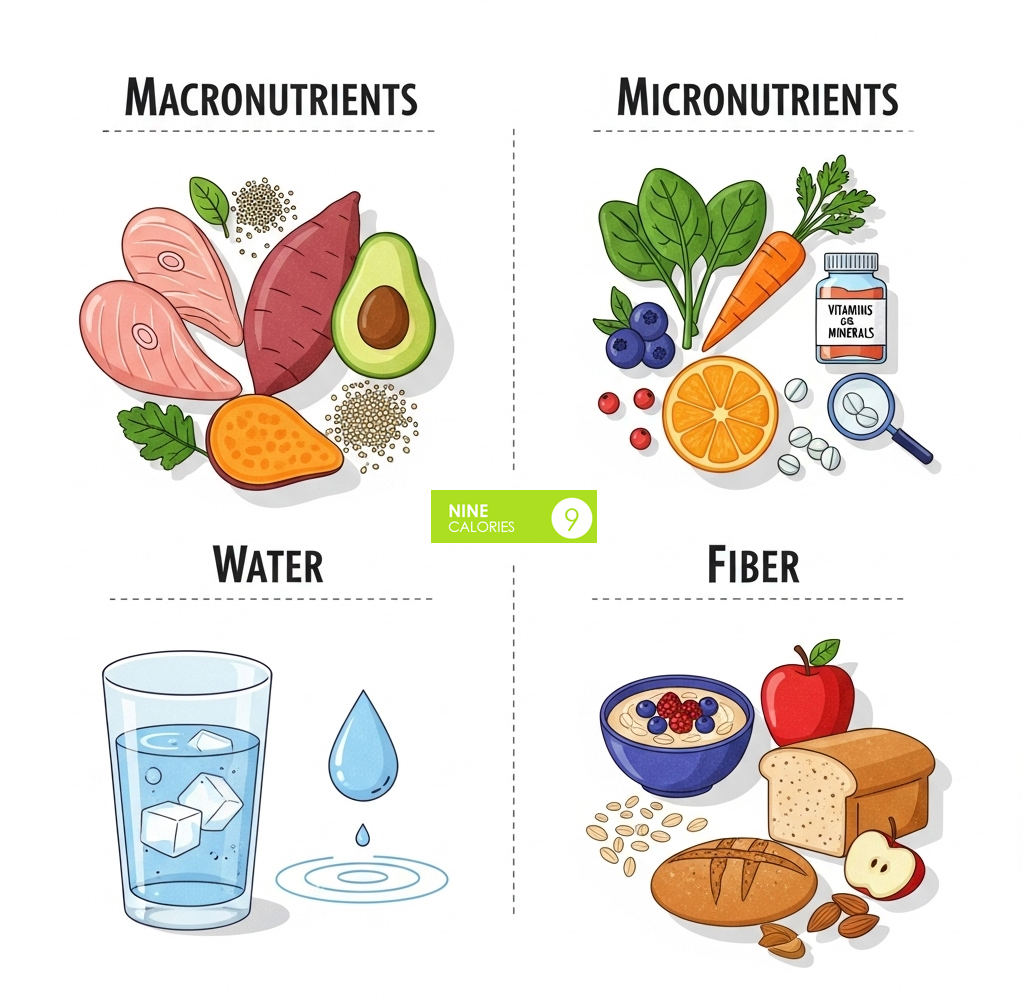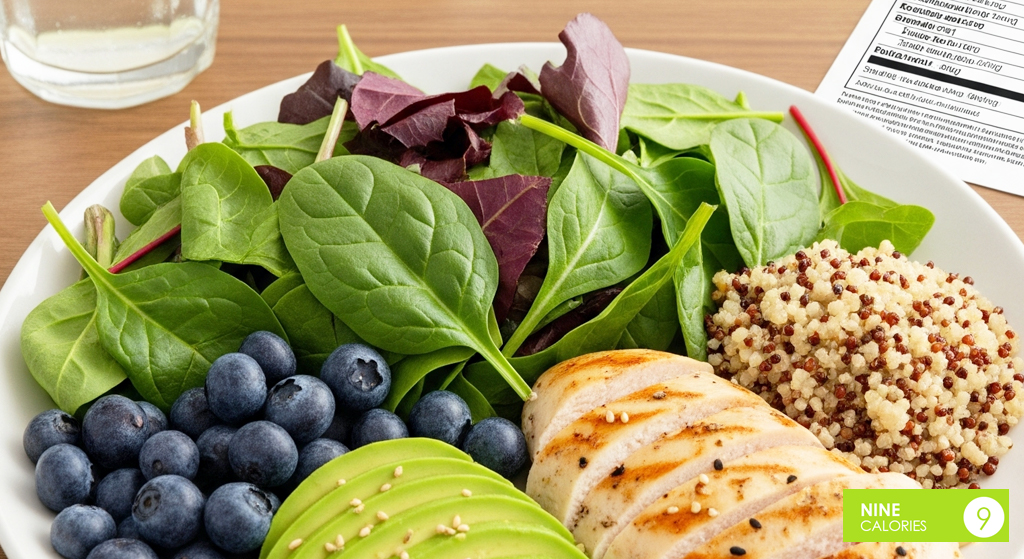Table of Contents
Nutrition shapes your health every day. The food you eat affects your energy, mood, and long-term well-being. Many people know nutrition matters but do not understand why. This article explains what nutrition is, why it impacts your life, and how to make better food choices. This guide is, thus, for anyone who wants to know why nutrition is important so they can improve their health through better nutrition.
What Does Nutrition Mean?
Nutrition is how your body gets what it needs to function. Food and drinks provide essential substances. These substances support growth, repair, and daily activities.

Your body needs several types of nutrients:
- Macronutrients: Carbohydrates, proteins, and fats supply energy and build tissues.
- Micronutrients: Vitamins and minerals support specific body processes.
- Water: This keeps you hydrated and aids digestion.
- Fiber: This promotes healthy digestion and steady blood sugar.
Every second, your body uses these nutrients. Without them, your cells cannot produce energy. Your brain cannot stay focused. Your immune system cannot fight illness.
Why Nutrition Impacts Your Health
Good nutrition does more than fill your stomach. It affects every part of your body. Below are six reasons why nutrition is essential.
1. Nutrition Provides Energy
Food is your body’s fuel. Each nutrient has a role:
- Carbohydrates supply energy for tasks like working or exercising.
- Proteins repair muscles and tissues after activity.
- Fats support brain function and hormone balance.
If you lack nutrients, you feel tired or weak. You may also struggle to concentrate. A balanced meal helps you stay active and alert.
2. Nutrition Prevents Chronic Diseases
Your diet influences your risk of serious illnesses. These include heart disease, type 2 diabetes, and high blood pressure. Certain cancers are also linked to poor nutrition.
For example, eating too much processed food raises heart disease risk. In contrast, fruits and vegetables lower it. Daily food choices matter. Over time, they protect or harm your health.
3. Nutrition Strengthens Immunity
Your immune system fights infections. It needs nutrients to work well. Key nutrients include:
- Vitamin C, found in oranges and peppers
- Vitamin D, from sunlight or fortified foods
- Zinc, in nuts and beans
- Iron, from spinach or lean meat
- Protein, from eggs or lentils
If you get sick often, your diet may lack these nutrients. A nutrient-rich diet helps you recover faster.
4. Nutrition Supports Mental Health
Food affects your brain. A steady supply of nutrients keeps your mind sharp. Without them, you may face:
- Low mood
- Poor focus
- Anxiety
- Memory problems
For example, omega-3 fats from fish improve brain function. B vitamins from whole grains regulate mood. Poor nutrition can worsen stress or sadness.
5. Nutrition Promotes Healthy Growth and Aging
Nutrition matters at every age. Children need nutrients for strong bones. Adults need them for energy. Older adults need them to stay mobile.
For example, calcium from dairy prevents fractures. Protein preserves muscle mass. A good diet slows physical decline. It helps you stay independent longer.
6. Nutrition Helps Manage Weight
Weight affects health. A balanced diet supports a healthy weight. It does this by:
- Stabilizing blood sugar
- Reducing cravings
- Preventing overeating
- Supporting metabolism
Fad diets often fail. They ignore your body’s needs. Steady, balanced eating leads to lasting results.
Signs You Need Better Nutrition
Poor nutrition shows in your body. Some signs are obvious. Others are subtle. Look for these issues:
- Constant tiredness
- Frequent colds
- Brittle hair or nails
- Upset stomach
- Mood changes
- Trouble sleeping
- Slow-healing wounds
If you notice these, review your diet. A nutritionist can help.
How Nutrition Affects Daily Life
Nutrition shapes your day-to-day experiences. Below are examples of its impact.
At Work
Poor eating habits hurt productivity. If you skip breakfast, you may lose focus by noon. Sugary snacks cause energy crashes. A meal with protein, fiber, and fats keeps you sharp. For example, eggs, oatmeal, and avocado provide lasting energy.
During Exercise
Food fuels physical activity. Without enough nutrients, you feel weak. Recovery takes longer. A diet with protein and carbs supports strength. Athletes who eat well perform better.
For Children
Kids need good nutrition. It helps them sleep, learn, and behave. Sugary foods cause mood swings. A diet with vegetables, protein, and grains supports school success.
As You Age
Older adults benefit from nutrition. Protein prevents muscle loss. Calcium strengthens bones. Nutrient-rich meals keep you active. This reduces fall risks.
A Personal Example
When I was in my 20s, I ate mostly fast food. I felt tired all the time. My mood was low. I got sick often. Then, I started cooking simple meals with vegetables and lean protein. Within weeks, I had more energy. My focus improved. This showed me how food changes how you feel every day.
How to Improve Your Nutrition
You do not need a perfect diet. Small, consistent changes work best. Here are seven steps to start:
- Choose Whole Foods: Eat foods close to their natural state. Examples include vegetables, fruits, nuts, and fish.
- Limit Processed Foods: Avoid items with added sugars or artificial ingredients. These include soda and packaged snacks.
- Stay Hydrated: Drink water daily. It supports digestion and energy.
- Balance Meals: Include protein, fiber, and healthy fats. This keeps you full longer.
- Control Portions: Eat until you are satisfied, not overly full. This prevents weight gain.
- Reduce Sugar and Salt: These raise disease risk. Check labels for hidden amounts.
- Plan Meals: Prepare food ahead of time. This reduces reliance on takeout.
Check this article, 10 Healthy 500-Calorie Breakfasts to Fuel Your Day, for a balanced and nutritious start to your morning.
When to Get Professional Help
Some people need expert advice. A registered dietitian can create a custom plan. Seek help if you have:
- Food allergies
- Diabetes
- Digestive issues
- Pregnancy
- Eating disorders
Professional guidance ensures safe, effective changes.
Nutrition Myths to Avoid
Misinformation about nutrition is common. Here are three myths and the truth:
- Myth: All fats are bad. Truth: Healthy fats from avocados or nuts support health.
- Myth: Carbs cause weight gain. Truth: Whole grains provide energy and fiber.
- Myth: Supplements replace food. Truth: Whole foods offer nutrients supplements cannot match.
Always check reliable sources for nutrition advice.
Therefore, Nutrition Is a Daily Choice
Nutrition affects how you feel today. It also shapes your future health. Each meal is a chance to support your body. Good food improves energy, mood, and focus. Over time, it lowers disease risk. It helps you age well.
You do not need to eat perfectly. Make better choices most of the time. Start with one change, like adding vegetables to dinner. Over weeks, these habits build a healthier life.




